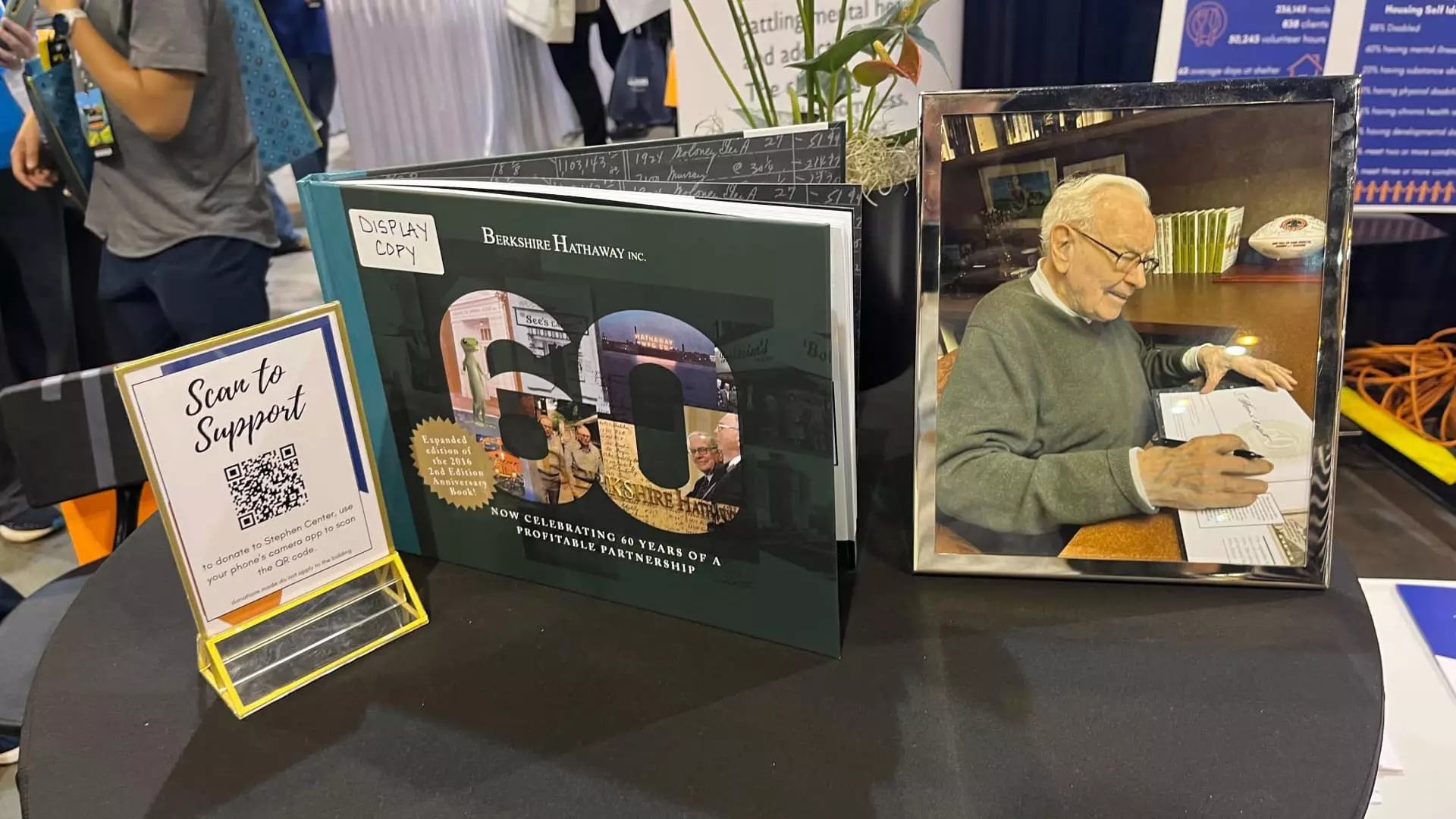In the lead-up to the annual meeting of Berkshire Hathaway, a fervor akin to a gold rush swept through Omaha. The allure? Exclusive memorabilia signed by Warren Buffett, the revered CEO of Berkshire Hathaway. Attendees scrambled to place bids in a silent auction for books that doubled as a means to support a local charity, the Stephen Center, a cornerstone in Omaha’s fight against homelessness and addiction. The initial excitement didn’t just halt at mere enthusiasm; it transcended into an extraordinary show of financial backing. Enthusiasts, characterized as “fans” by many, began lining their pockets with significant donations, culminating in a staggering $1.3 million.
What stands out here is not just the palpable excitement among shareholders, but the monumental implications of their contributions—directly helping those in the local community grappling with addiction and homelessness. It is a testament to the power and culture of altruism championed by Buffett, who pledged to match every dollar raised, amplifying the impact of these bids. The sense of community and purpose highlighted at the meeting serves as a potent reminder of how wealth can redirect lives for the better.
More Than Just an Auction: Personal Stories of Impact
The silent auctions featured not only monetary transactions, but also emotional investments. One notable bidder, Matthew Rodriguez, articulated the emotional weight behind his bid of $50,000. He described his winning piece not just as an artifact, but a “priceless” addition to his library that encapsulated his admiration for Buffett, and the cause he was supporting. Rodriguez’s deep-rooted connection to Omaha and firsthand knowledge of the Stephen Center’s efficacy echoed the broader narrative being woven at the event—each dollar spent resonated with empathy and awareness, becoming a bridge linking prosperity back to the community.
Moreover, the testimonials from various donors showcased a compelling narrative—many were individuals who had experienced hardships similar to those faced by the Stephen Center’s clients. Jay Ji, another winning bidder, openly shared his childhood memories of economic adversity. His motivation for donating—stemming from a genuine desire to alleviate the suffering of families—rings profoundly true. This highlights a significant aspect of Buffett’s empire: beyond capitalism’s profit motives lies a humanistic approach, taking into account the collective responsibility towards societal betterment.
The Underlying Challenge: A Growing Crisis of Homelessness
Buffett’s charitable initiatives undeniably strike a chord in Omaha, yet they also shine a light on an underlying issue that is often overlooked—the growing crisis of homelessness. With data indicating a nearly 10% increase in the homeless population within the past year, the reality bespeaks of more than mere financial aid; it underscores a rising societal challenge that requires comprehensive solutions. The funds raised during the annual meeting are earmarked not just for immediate needs, but for long-term infrastructure improvements, which includes renovations at the Stephen Center and plans for a women and children’s center. This rings true in today’s socio-economic climate where immediate charity must also align with sustainable development.
Buffett’s approach of tying his substantial donations to local issues presents a framework that could potentially inspire business leaders and investors across the spectrum. It provokes thought about the impact of corporate giants on grassroots challenges and invites dialogue about the efficacy of solely financial interventions versus strategic philanthropy that addresses systemic concerns.
Redefining Wealth: Buffett’s Philanthropic Ideals
The narrative around Warren Buffett and his philanthropic ideology is not only about the funds dispersed; it represents a revolutionary discourse on wealth and personal legacy. By articulating his desire to give away nearly all of his fortune, Buffett has positioned himself against the notion of dynastic wealth, urging a different perspective on inheritance that prioritizes societal welfare. This exemplifies a refreshing honesty rarely seen in today’s corporate world: a bold declaration that personal wealth should serve a larger purpose.
Furthermore, Buffett’s consistent alignment of personal and corporate values suggests a model for future business leaders. He embodies an integration of capitalism and altruism, beckoning today’s executives to reconsider their corporate responsibilities beyond profit maximization. The shareholder meeting didn’t just showcase Buffett’s financial acumen; it illuminated his moral compass, setting a benchmark for what corporate responsibility can embody when leaders choose to weave philanthropy into their business fabric.
The implications for future business leaders and the internalization of such philanthropic principles could yield transformative effects, not only reshaping local communities but also redefining the business landscapes in broader contexts.

